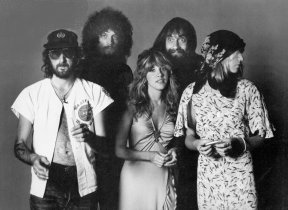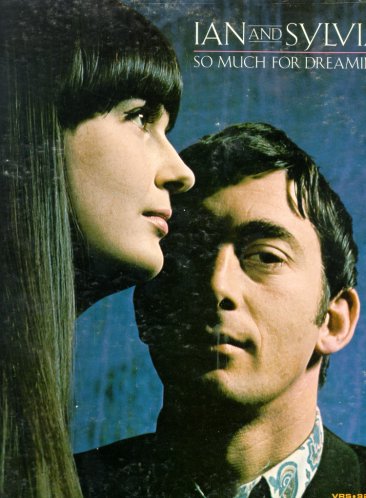All right, these ideas are copyrighted– okay? So you can’t steal them. They are going to make me a lot of money.
There are two absolutely magnificent, wonderful movies out there just waiting to be made.
First of all, a movie biography of Bob Dylan.
Bob Dylan grew up in Minnesota and wanted to be a rock’n’roll singer like Elvis. He didn’t see the fact that he sounded like a chorus of drowning weasels as an obstacle. He hitch-hiked to New York, found out that folk music was what was happening, man, and began playing at open mic shows at several local folk clubs, sounding more like Woody Guthrie than Elvis Presley. In fact, people used to say he sounded more like Woody Guthrie than Woody Guthrie did. (You can check this out by downloading some Guthrie tunes through Napster– the resemblance to early Dylan is uncanny.)
He wrote some of the greatest folk songs of the century. He was noticed by New York Times folk critic Robert Shelton. Bingo– Columbia (now Sony) signed him to a recording contract. For a while he was known as “Hammond’s Folly”, after John Hammond, the A&R man who signed him. But Joan Baez took him along on tour. Peter, Paul, and Mary covered his best songs like “Blowin’ in the Wind” and “Don’t Think Twice, It’s All right”. He became big. Very big. Even the Beatles were listening to Bob Dylan. (But Elvis wasn’t– he was in the army, and then he was making crummy “B” movies in Hollywood.) He became the “spokesman of generation”. He didn’t want to be the spokesman of a generation. He shifted to rock’n’roll in 1965, with a bunch of Canadians known as “The Hawks” (later known simply as “the Band”) backing him. He wrote more great songs. Then, in 1967, he was almost killed in a motorcycle accident. In the meantime, the Beatles and Rolling Stones released several massively over-produced behemoths of albums, Sergeant Pepper’s Lonely Hearts Club Band and Her Satanic Majesties Request. Everyone eagerly awaited Dylan’s response. Would he top them?
Dylan shocked the music world by releasing a very folky, very laid-back album called “John Wesley Harding”, featuring drums, bass, guitar, and harmonica. He retreated into a simpler, more introspective style.
It’s a great story. It covers the most fascinating period of American history this century: the 1960’s. It’s got everything. Everything except… the rights to Dylan’s songs.
Bob Dylan– unlike most musical artists today– actually owns the rights to his songs. If someone were to make a movie of Bob Dylan’s life, he would have to get Bob Dylan’s permission, or make a movie about the greatest song-writer of our century without using any of his songs.
Bob– if you’re listening– I have a great idea for you. Call Martin Scorsese and tell him that he can make a movie about you and you will give him the rights to use any of your songs in the movie. Tell him that you won’t even look at the movie or the script or anything until after it’s all done. Tell him he can do whatever he thinks is best with the story.
Come on, Bob. You gave “The Times They Are A’Changin'” to the Bank of Montreal. It’s the least you could do for your fans. You owe it to them.
The results would be a great movie. It would not always be flattering to Bob Dylan, who sometimes acted like a jerk, and who was known to stand aloof from his friends. But the most flattering thing about it would be that Bob Dylan was big enough and brave enough to do the right thing and let someone else make this movie and to let the director have all the control over the material, the way Bob has full control over his own recordings.
Are you listening, Bob? I ask a measly 1% of the gross in exchange for permission to use this idea, and the right to meet Uma Thurman, if she could be given a bit part, perhaps as Nico.
Okay– my second great movie idea: a remake of the 3 Stooges. This time, they are computer programmers working for Microsoft. While they’re not coding new applets for Office 2003 1/2, they are off creating mayhem at the Department of Justice Hearings, or directing U.S. negotiations at the WTO.
I’m serious. People are ready for unsophisticated, trashy, vaudeville-type humour. The baby-boomers will love it. Young people always find obscure retro-acts hip and amusing. Anyone who has ever used Microsoft Windows will immediately appreciate the humour of Curly trying to figure out how “plug’n’play” works, or writing little Java applets for the Microsoft Web Page or finding ways to make Word Perfect crash.
Well that’s it. Are you listening, Hollywood Moguls? Call me and make me rich.
Who should star in a Bob Dylan Movie:
Sean Penn as Bob Dylan
Robert Deniro as Albert Grossman
Anne Hathaway as Joan Baez (yes, Anne can sing).
Ronnie Hawkins as the ghost of Elvis
Tom Waits as Woody Guthrie
Uma Thurman as Nico
Al Pacino as Leonard Cohen
Winona Ryder as Sarah Lowndes
10 years after I wrote this, Bob Dylan did exactly what I suggested– except, he gave it to Todd Haynes instead of Martin Scorcese. The result was the exquisite “I’m Not There”. You’re welcome, Bob. Call me sometime and we’ll work out a gratuity. [2011-03]
Correction: Todd Haynes was the director, not P. T. Anderson as stated earlier. [2014-09-16]


